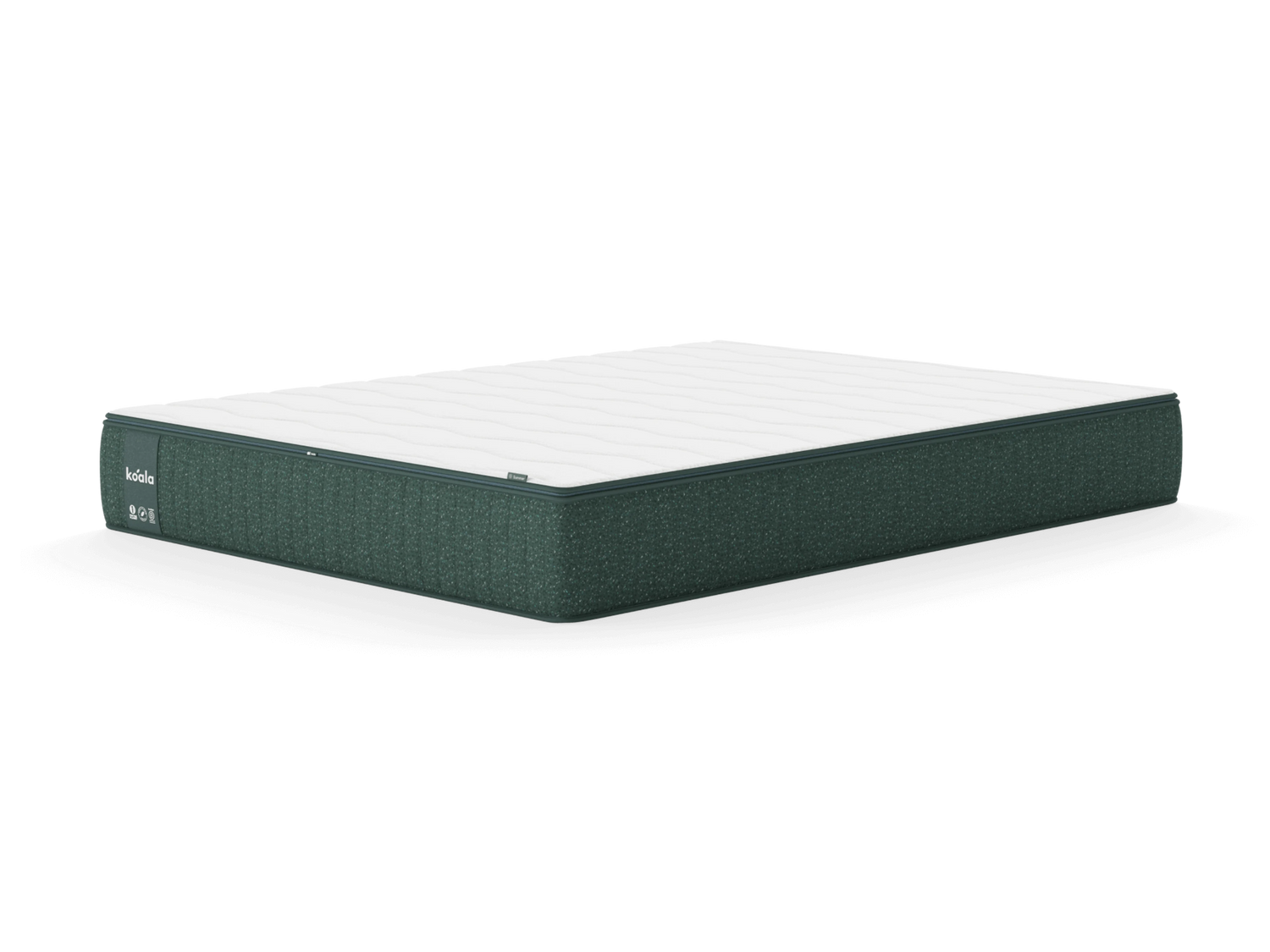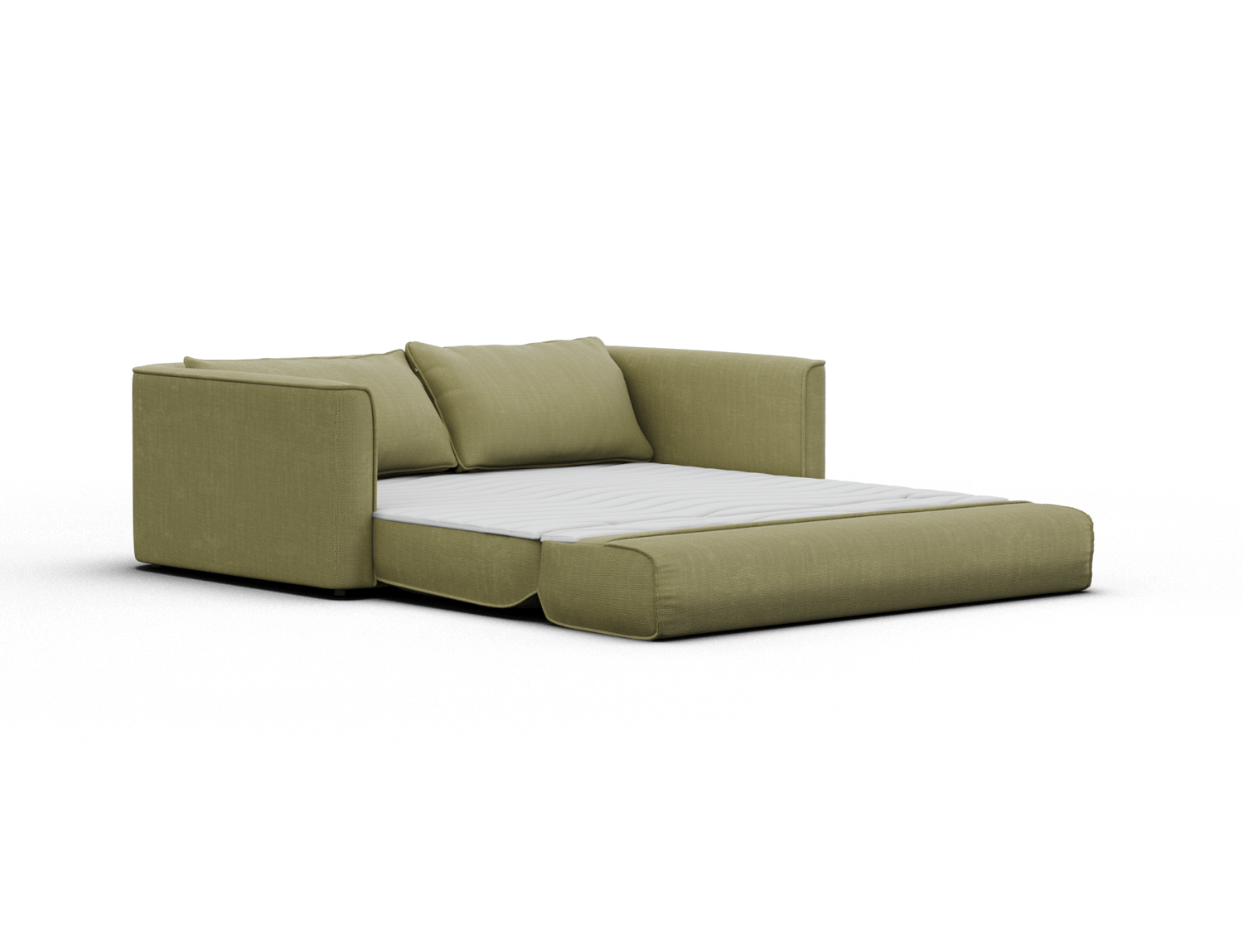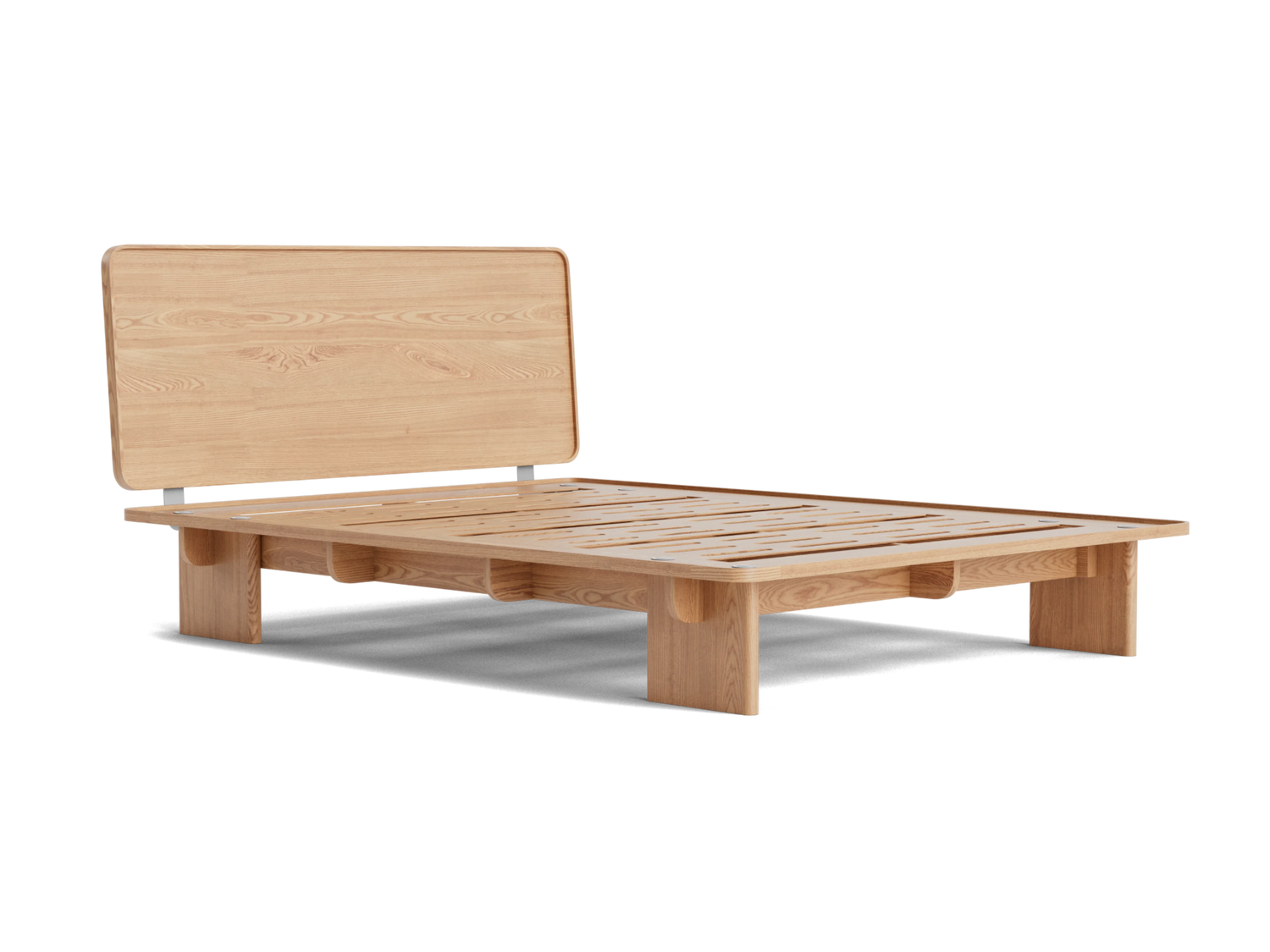8 best sustainable furniture brands in Australia in 2025
Share
Buying furniture shouldn't mean sacrificing style for sustainability, or vice versa. The good news is, with brands like Koala making pieces that look great with materials that won't trash the environment, you don’t have to.
Sustainable furniture uses responsibly sourced materials and lasts long enough to justify its footprint. And the best brands back up their green claims with proper certifications instead of just saying they care about the planet.
We've rounded up eight brands that take sustainability seriously, so you can furnish your home with pieces that are as environmentally savvy as they are stylish.
Quick guide: 8 best sustainable furniture brands in Australia
-
Koala: The best sustainable furniture brand for eco-conscious Australian homes
-
Castlery: Traceable timber for premium pieces
-
RJ Living: RJ Living: Local maker partnerships for community-minded decorators
-
Freedom: Green Star building certification for sustainable warehouses
-
Emma: Recycled steel springs for waste-conscious sleepers
-
Lounge Lovers: Customised furniture for patient eco enthusiasts
-
Eva: Low-impact manufacturing for mindful minimalists
-
Ecosa: Adjustable mattresses for eco sleepers
How we chose the best sustainable furniture brands in Australia
There’s more to making sustainable furniture than slapping a green label on a product. We looked at brands that back up their environmental claims with certifications, transparent sourcing, and products that last long enough to keep them out of landfills.
Here’s what we weighed up when choosing our top sustainable stores in Australia:
-
Environmental certifications and third-party verification: Independent proof that brands meet genuine sustainability standards.
-
Sustainable material sourcing and manufacturing processes: Materials that don't unnecessarily deplete resources or harm ecosystems.
-
Product durability and warranty coverage: Furniture that lasts years instead of ending up in a landfill next week.
-
Transparency about supply chain and production: Clear information about where materials come from so you know what you're really buying.
-
Recycling programmes and end-of-life considerations: Options for responsibly disposing of furniture when you're done with it.
-
Delivery practices and packaging sustainability: Reduced emissions and waste when getting furniture to your door.
-
Customer reviews and real-world longevity: Real feedback on how pieces hold up over time.
The 8 best sustainable furniture brands in Australia
1. Koala: The best sustainable furniture brand for eco-conscious Australian homes
Koala designs sustainable furniture that gives a f*ck. We manufacture our products using FSC Timber, CertiPUR-US foam, carbon-zero TENCEL Lyocell, and recycled fabrics. They’re as easy on the planet as they are on the eyes.
Our award-winning knockdown designs can be put together and taken apart over and over again without breaking or buckling. When your sofa can handle years of daily use without a hassle, it’s less likely to end up piling up in the landfill.
As a 1% for the Planet member, we donate a portion of every sale to environmental causes. So far, we've given over $15 million to organisations like WWF Australia (which has helped to protect actual koalas and their habitats).
We’re a certified B Corporation. A title we earned by meeting rigorous standards for environmental and social performance, and having independent auditors verify everything from how we source materials to how we treat our team. So you don’t have to just take our word for it when we say we care about the planet.
Koala features
-
FSC-certified timber from renewable sources
-
Replaceable parts and washable covers
-
Products made from recycled and plant-derived materials
-
B Corp certified and 1% for the Planet member
-
Kloudcell foam with eco-friendly materials
-
Koala Second Home refurbishing programme
-
Donated over $15 million to environmental partners
Koala pros and cons
Pros:
-
Durable designs with extended warranties
-
Tool-free assembly for easy moving
Cons:
-
Limited physical showroom locations, though the 120-night trial lets you test at home
-
Made-to-order items take longer than stock pieces, but this reduces waste from overproduction
-
No fully circular mattress design yet, but our Second Home program extends product life
2. Castlery: Traceable timber for premium pieces
Castlery uses CITES compliant timber in their thoughtfully designed pieces. Which means you won’t accidentally buy furniture made from protected forests. This traceability matters for sustainability.
Over 600 of their upholstery items use OEKO-TEX certified fabrics, which are free (or almost free) from harmful chemicals. And their GoodWeave-certified rugs are ethically produced without child labor. While all of these badges are great, they do form a big part of Castlery’s premium price tag.
Castlery features
-
CITES-compliant timber
-
OEKO-TEX certified fabrics
-
GoodWeave-certified rugs
Castlery pros and cons
Pros:
-
Direct-to-consumer model
-
Contemporary minimalist designs
-
5-year warranty coverage
Cons:
-
Premium pricing for some pieces
-
Limited physical showrooms in Australia
-
Longer delivery times for some items
3. RJ Living: Local maker partnerships for community-minded decorators
RJ Living is an Australian family-owned business that’s built its reputation on quality craftsmanship. They partner with local makers who share their environmental values to create pieces from renewable natural materials like rattan, teak, and oak.
They're rolling out 100% recyclable packaging as part of their sustainability improvements. Plus, through donations to Clean the Sea and their partnership with Seabin, they're helping get rid of ocean plastic. They’ve only just begun their sustainability journey, though. So it might be worth waiting to see if their practices make a real difference.
RJ Living features
-
Natural rattan and timber materials
-
Indoor and outdoor furniture range
-
Ocean cleanup donations
(RJ Living features reflect the information available on the RJ Living website as of the publication date.)
RJ Living pros and cons
Pros:
-
High quality products built to last
-
Versatile indoor/outdoor designs
-
Australian family-owned operation
Cons:
-
Natural materials require maintenance
-
Sustainability is a recent focus
-
Limited contemporary style options
4. Freedom: Green Star building certification for sustainable warehouses
Freedom's new distribution center runs on solar power and captures rainwater. The sustainability features in the building are there to reduce the brand’s overall impact on the environment.
The brand also produces select pieces of furniture in Australia, which does double sustainability duty by cutting down shipping emissions from imports and supporting local workers. The idea is great, but you’ll have to do a bit of digging to find which pieces are actually made Down Under.
Freedom features
-
Some furniture made locally
-
Australian Packaging Covenant member
-
Partnership with Soft Landing for recycling
(Freedom features reflect the information available on the Freedom website as of the publication date.)
Freedom pros and cons
Pros:
-
Nationwide physical store network
-
Multiple financing options
-
Focus on furniture longevity
Cons:
-
Not all products locally manufactured
-
Limited transparency around sustainability practices
-
No B Corp certification
(Freedom features reflect the information available on the Freedom website as of the publication date.)
5. Emma: Recycled steel springs for waste-conscious sleepers
Emma brings European design sensibility to their sleep products, with OEKO-TEX certification on their mattresses and bedding that guarantees materials are free from harmful chemicals. Their range does focus primarily on sleep products, though, so you'll need to look elsewhere if you're furnishing your whole home.
The 15-year lifespan of Emma’s recycled pocket spring mattresses, which are backed by a 10-year warranty, means you're not replacing your bed every few years. Plus, the 200-night trial gives you more than six months to decide if their mattress works for you.
Emma features
-
OEKO-TEX certified materials
-
Recycled steel springs
-
10-year warranty
(Emma features reflect the information available on the Emma website as of the publication date.)
Emma pros and cons
Pros:
-
79% less foam in newer models
-
200-night trial period
-
European design heritage
Cons:
-
Uses petroleum-based memory foam
-
Limited to sleep products
-
No physical showrooms in Australia
5. Lounge Lovers: Customised furniture for patient eco enthusiasts
Lounge Lovers lets you customise furniture to your exact specifications, which means you get pieces that fit your space perfectly instead of settling for close-enough options you'll replace sooner rather than later.
The brand focuses on natural materials like sustainable top-grain leather instead of synthetic alternatives so your furniture lasts longer and you can check out of the wasteful replacement cycle. All of this is great for longevity, though some of the upfront environmental costs are high.
Lounge Lovers features
-
Customisable furniture designs
-
FSC certified timber frames
-
Natural top-grain leather
Lounge Lovers pros and cons
Pros:
-
Focus on durability
-
Multiple style ranges
-
Local showrooms
Cons:
-
Limited sustainability certifications
-
Custom orders take longer
-
Premium pricing
7. Eva: Low-impact manufacturing for mindful minimalists
Eva keeps their manufacturing footprints small through low-impact processes. Every product is locally designed with sustainability considerations built into the development process, including material choices like FSC-certified timber and recycled fabrics.
Their CertiPUR-US certified foams meet standards for emissions, content, and durability without harmful chemicals like mercury, lead, or formaldehyde. But sustainable shoppers will want to hang onto their pieces for as long as possible for a different reason: EVA foam construction means mattresses and cushions can’t be recycled.
Eva features
-
CertiPUR-US certified foams
-
FSC-certified timber
-
Low-impact manufacturing
(Eva features reflect the information available on the Eva website as of the publication date.)
Eva pros and cons
Pros:
-
Budget-friendly pricing
-
Focus on durability
-
Up to 100 days to try pieces
Cons:
-
EVA foams not easily recyclable
-
Limited transparency about impact
-
Not a B Corp
8. Ecosa: Adjustable mattresses for eco sleepers
Every Ecosa mattress diverts 200 to 400 plastic bottles from landfills and oceans, turning rubbish into restful sleep. And they tackle the waste problem at the other end too. The brand’s recycling programme has diverted over 10,000 mattresses returned in metro areas from landfills.
The mattress-in-a-box system makes it easy to set up your bed when it first arrives. Though you might be less than impressed by the mattress recycling program when you see the amount of plastic involved in keeping the bed in its moving-friendly packaging.
Ecosa features
-
Recycled plastic bottle materials
-
Mattress recycling program
-
B Corp certification
(Ecosa features reflect the information available on the Ecosa website as of the publication date.)
Ecosa pros and cons
Pros:
-
Commitment to net-zero carbon emissions
-
Adjustable firmness mattresses
-
Made from ocean waste
Cons:
-
Recycling programme limited to major metros
-
Mattress-focused product range
-
Uses petroleum-based foam
Comparison table: The best sustainable furniture brands in Australia
|
Store |
B Corp |
Recycling or rehoming programme |
Warranty |
|
Koala |
✓ |
✓ |
5 to 10 years |
|
Castlery |
✗ |
✗ |
5 years |
|
RJ Living |
✗ |
✗ |
Varies |
|
Freedom |
✗ |
✗ |
10 years |
|
Emma |
✗ |
✗ |
10 years |
|
Lounge Lovers |
✗ |
✗ |
10 years |
|
Eva |
✗ |
✗ |
10 years |
|
Ecosa |
✓ |
✓ |
15 years |
Why should you buy sustainable timber furniture in Australia?
Quality timber lasts decades when properly cared for, which matters for sustainability. But not all wood furniture is automatically a good choice for the planet.
FSC certification means timber comes from forests managed to protect wildlife, prevent soil erosion, and maintain water quality. Unlike clear-cutting operations that strip land bare, these forests get replanted so future generations can benefit from them too.
Furniture that’s made from local Australian timber cuts down on shipping emissions compared to imported wood. You're also supporting domestic forestry operations that follow stricter environmental regulations than some overseas sources.
It’s also important to buy the right kind of wood furniture. Hardwoods like jarrah or blackwood that naturally resist wear and tear, and don’t require too much hard yakka to keep looking good.
How to identify eco-friendly sustainable furniture
Greenwashing is everywhere, so you need to know what to look out for when it comes to sustainability claims.
Third-party certifications like B Corp, FSC, GOTS, OEKO-TEX, and CertiPUR-US mean independent auditors verified the environmental claims instead of the brand just saying nice things about itself.
Natural alternative materials in furniture designs matter too. Cork leather is more eco-friendly than traditional leather, which uses a lot of water to manufacture and creates chemical runoff, while FSC timber shows that the structure of your furniture is truly sustainable.
Material transparency separates genuine eco friendly sustainable furniture from marketing fluff. Brands should tell you exactly what's in their products and where it comes from. If a company won't say which forests their timber comes from or what chemicals are in their foam, that's a red flag.
Why Koala makes best sustainable furniture in Australia
Koala designs furniture is sustainable as. You're getting innovative FSC-certified timber construction topped with sustainable materials like cork leather, low-emission Kloudcell foam, and recycled fabrics. So you don’t have to sacrifice eco-consciousness for comfort.
We offer a 5-year warranty on furniture and 10-year coverage on our mattresses to keep your pieces working at their best for as long as possible. Plus, when you’re done with your pieces, the Koala Second Home program keeps furniture in circulation instead and out of landfills.
Our B Corp certification and 1% for the Planet membership aren't just shiny sustainability badges. They're backed by over $15 million in donations to environmental causes, including $4 million directly protecting koalas through WWF-Australia.
Ready to furnish your home without trashing the planet? Explore our full range of sustainable furniture at Koala.
FAQs about sustainable furniture brands in Australia
What is sustainable furniture?
Sustainable furniture is made from responsibly sourced materials using ethical production methods, think FSC-certified timber from renewable forests, recycled materials, and low-emission manufacturing processes. Koala also factors in product longevity, ensuring pieces last longer to reduce replacement cycles.
Where can I buy sustainable furniture?
You can find sustainable options at online retailers, specialist eco-furniture stores, and direct-to-consumer. Look for brands with transparent sourcing and recycling programs, like Koala, to make sure their pieces are actually sustainable.
What makes furniture sustainable?
Sustainable furniture combines responsibly sourced materials, ethical manufacturing, durability, and end-of-life recycling options. Koala's knockdown designs reduce shipping emissions and lets you to replace parts, so it lasts as long as possible.
What is eco-friendly furniture made of?
Eco-friendly sustainable furniture is often made from FSC-certified timber, recycled materials like plastic bottles or reclaimed wood, natural fabrics like organic cotton or wool, and low-VOC finishes that don't release harmful chemicals. Remember that quality construction matters too.



